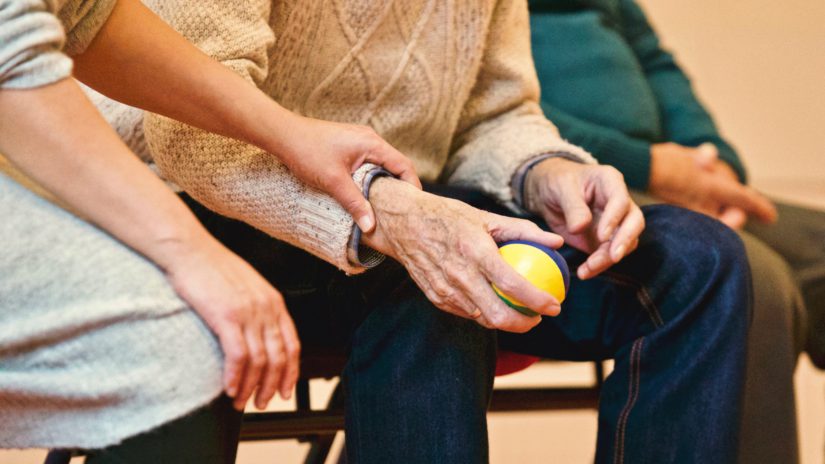Seven warning signs of nursing home abuse and neglect

There are about 1.5 million individuals residing in nursing homes, according to the Centers for Disease Control and Prevention. Nursing home abuse isn’t as rare as some might think. According to data compiled by the National Center on Elder Abuse, about 10 percent of all nursing home residents were victims of some form of abuse in the last year.
Nursing home abuse encompasses any injury sustained due to a facility and its staff’s failure to provide appropriately attentive care. The burden often falls on family members to recognize and report those incidents.
A single red flag isn’t always obvious. Beware of any of the following warning signs as clues, though not necessarily proof, of poor care:
1. Unexplained bruises or fractures
Does your family member have any broken bones, cuts, abrasions, sprained joints or burns on their body? Sometimes these wounds and sores are accompanied by your family member being unable or choosing not to discuss how an injury occurred, which might indicate that a caretaker harmed them, or a lack of supervision or damaged equipment that resulted in a serious fall. If nursing home staff don’t have or don’t provide an answer for how an injury happened, that’s a red flag of substandard care.
2. Bed sores or skin infections
If your family member is unable to move in their bed and is not repositioned by the staff per their orders, bedsores and other ailments may occur. Patients in wheelchairs or who are immobile are prone to this problem.
3. Malnourishment or dehydration
According to recent medical literature, roughly 20 percent of all nursing home residents suffer some form of malnutrition. When instances of dehydration are included, the number of abused and neglected nursing home residents rises dramatically.
Malnourishment or dehydration can be challenging to spot without direct complaints from a resident. Keep and eye out for symptoms such as rapid weight loss or weight gain, dry mouth, cracked lips, swollen tongue, reduced urine output, and feeling weak, possibly because food was either withheld from a resident — which is a form of abuse — or they aren’t receiving proper assistance at meal times.
4. Emotional or physical changes
Is your family member less able to function than usual, taking part in fewer activities, withdrawn from normal activities, or communicating less with you or nursing home staff? Those are a few signs of potential abuse or neglect.
The physical appearance of residents can reveal problems. Many nursing home residents need assistance with getting dressed, brushing their teeth, clipping their nails, bathing, combing their hair and more. When a nursing home does not have enough staff members, residents may be left to try and care for themselves on their own, and their appearance and hygiene suffers.
5. Unanswered or deflected questions by nursing home staff
When you ask nursing home staff a question and they don’t know the answer, a reply such as, “I don’t know, but I will find out,” is a reasonable response (as long as it isn’t a routine answer). In general, if you feel that the staff are evasive with your questions, or are unwilling to discuss the care of your family member with you, that’s a significant red flag of poor care.
When your questions are met with, “It’s nothing to worry about,” or, “This is how we do things around here,” you should be concerned.
6. Frantic or inadequate staff
A busy staff from time to time isn’t entirely uncommon, but if it always feels chaotic, or like you cannot locate staff at a nursing facility when you visit, it could indicate an understaffing issue. For some companies that operate nursing homes, the health and safety of your family member is less important than profits and margins. A nursing home should never jeopardize the well-being of its residents.
Understaffing can lead to nursing home injuries. Examples might include medication errors, choking or suffocation, malnutrition or poor hygiene, and unsanitary or unclean living conditions (dirt, fleas, lice, soiled beds, inadequate clothing, or an odor of feces or urine).
7. Finances that are out of sorts
Why are there bizarre purchases on a credit card or debit card, or unusual bank account activity, such as large or unexplained withdrawals? Those are just two signs of financial abuse or exploitation. Financial exploitation occurs when a person misuses or takes the assets of a vulnerable adult for their own personal benefit, sometimes without the victim’s knowledge.
Be wary of the disappearance of valuable personal items (including medication or cash), changes to a family member’s will or power of attorney, sudden financial problems, healthcare fraud (such as charges for services or medications that were never provided), or an increase in spending on lotteries, sweepstakes or phony charities.
When to contact a nursing home neglect lawyer
The moment you suspect nursing home neglect or abuse, contact the appropriate authorities right away, and schedule an appointment with the nursing home neglect lawyers at Lowe Scott Fisher Co., LPA, to determine if legal action is warranted. Consultations on potential cases are always free.
Representing victims and their families throughout Ohio, our nursing home abuse and negligence lawyers will investigate your claim and hold the appropriate parties responsible for their actions. Contact attorneys Greg Scott, Ryan Fisher and Meghan Connolly today for a free consultation at 216-781-2600 to find out how we can help protect you and your family.
Back To Blog